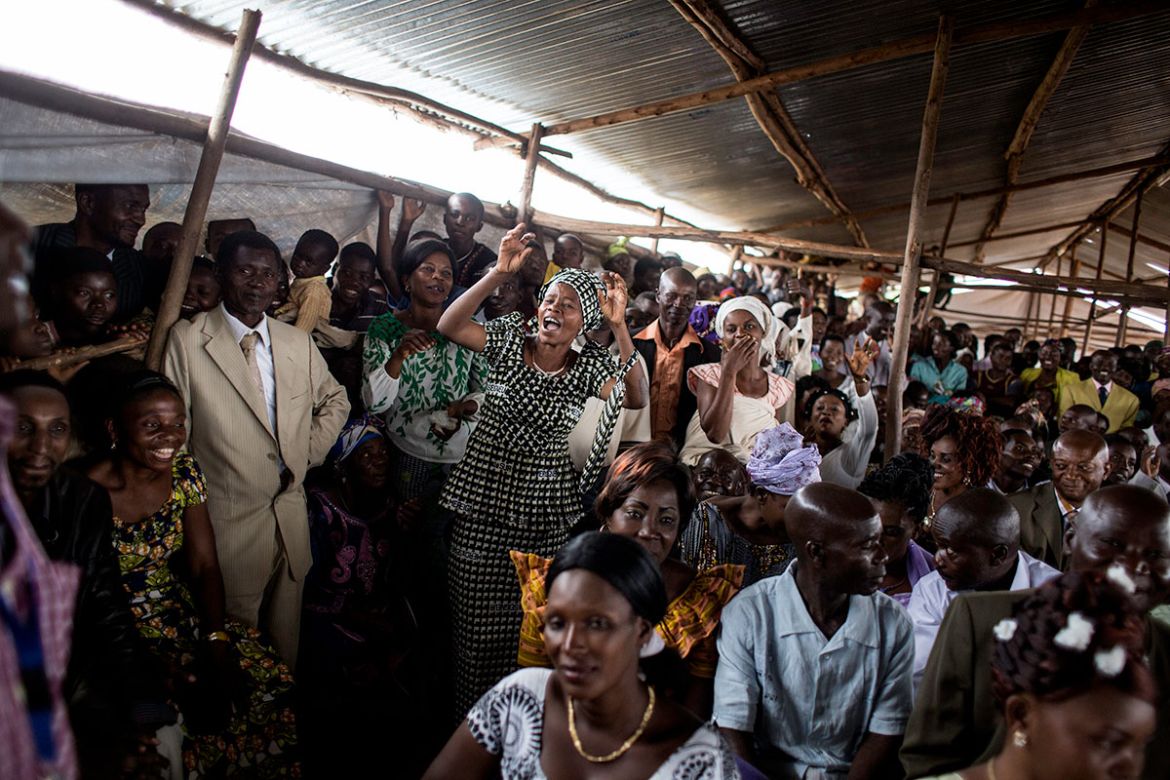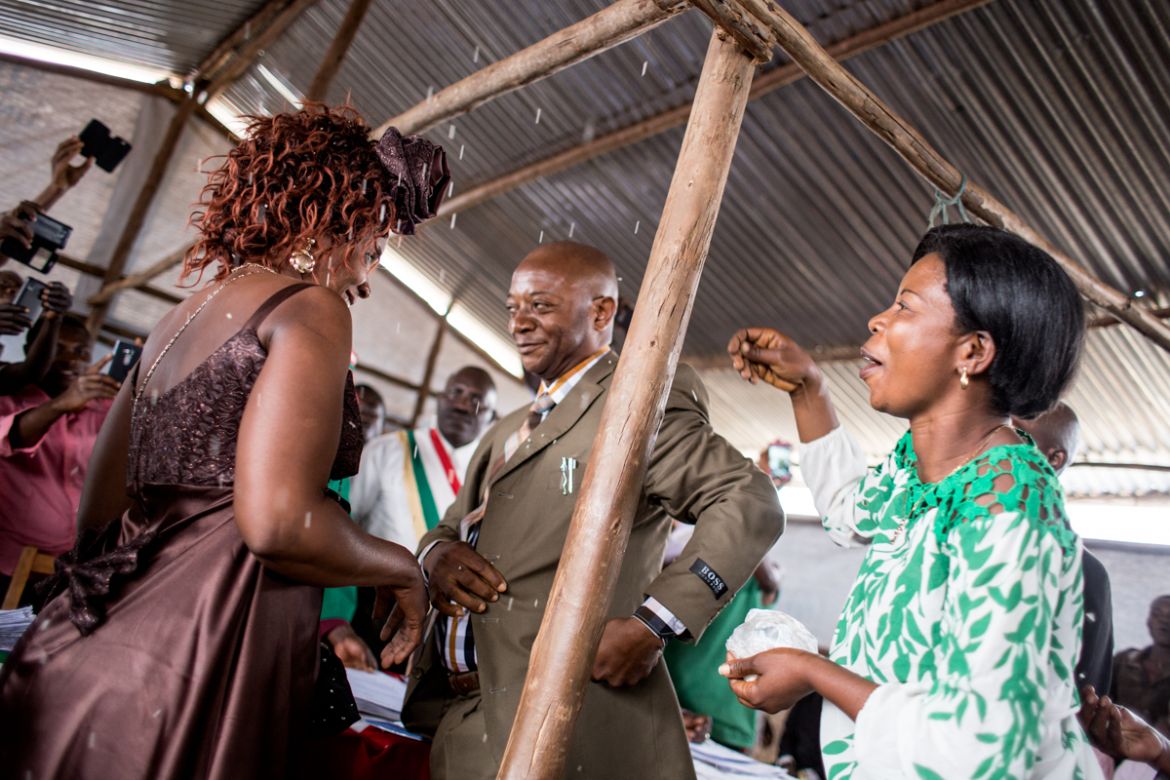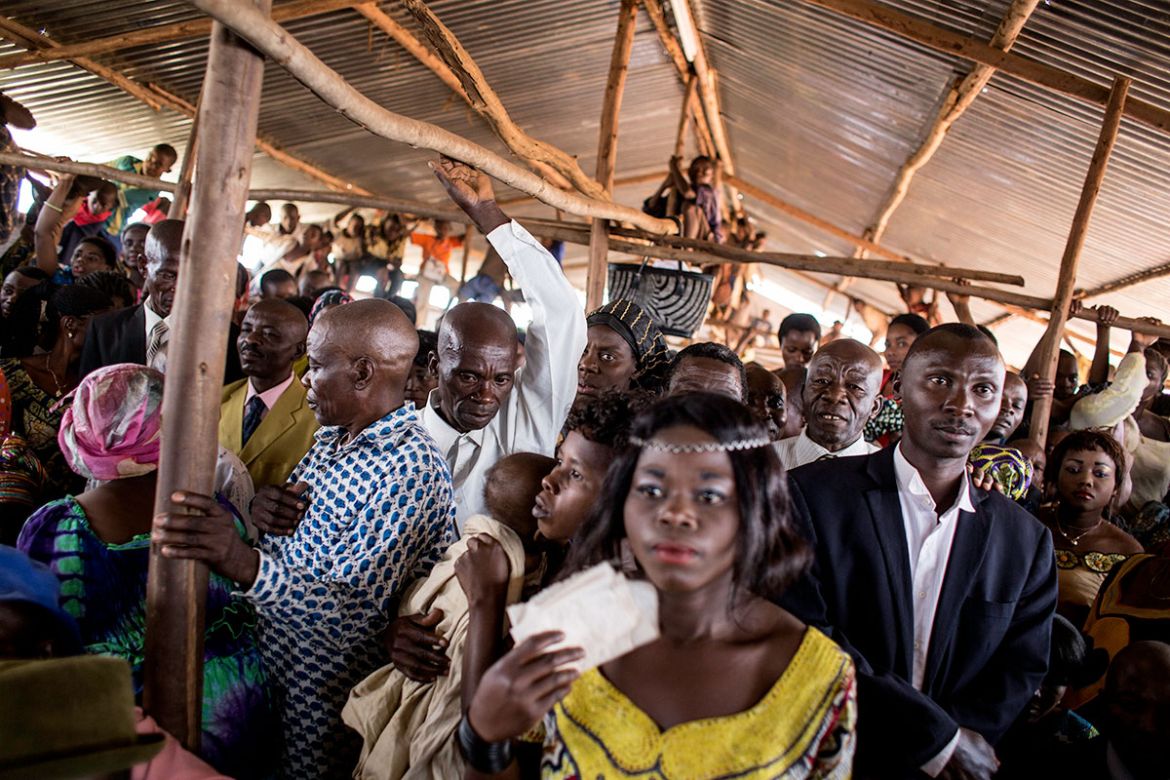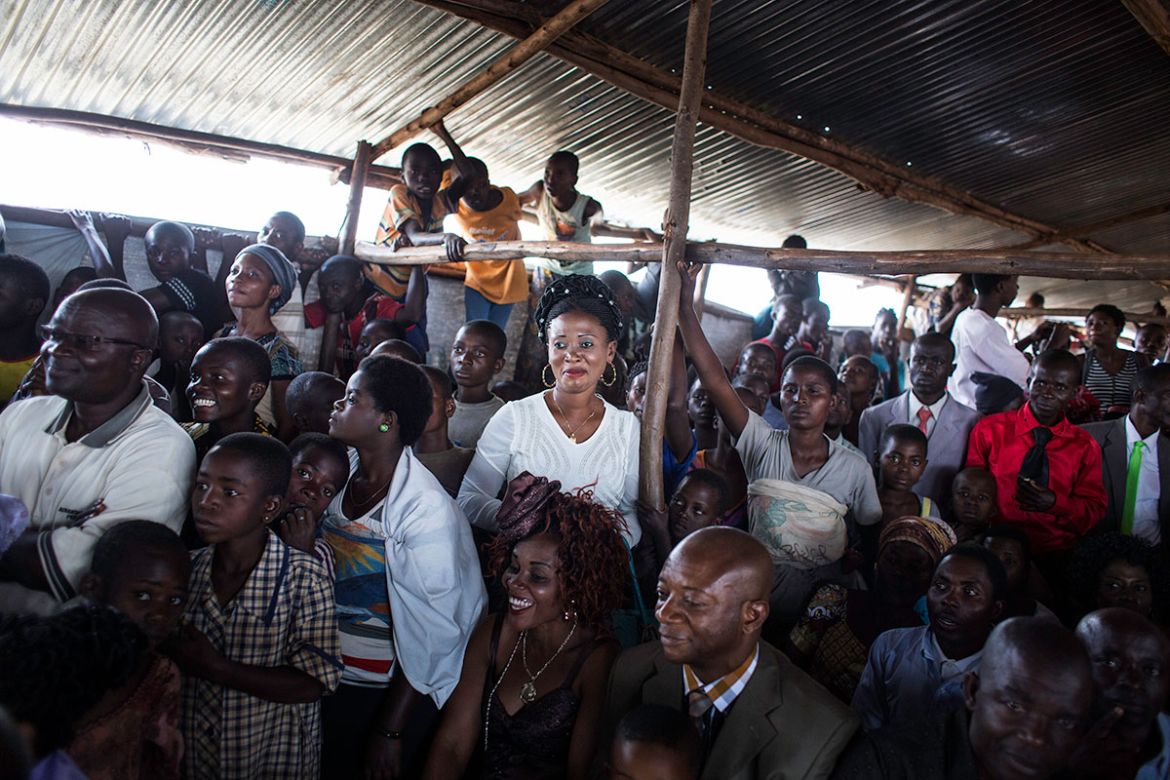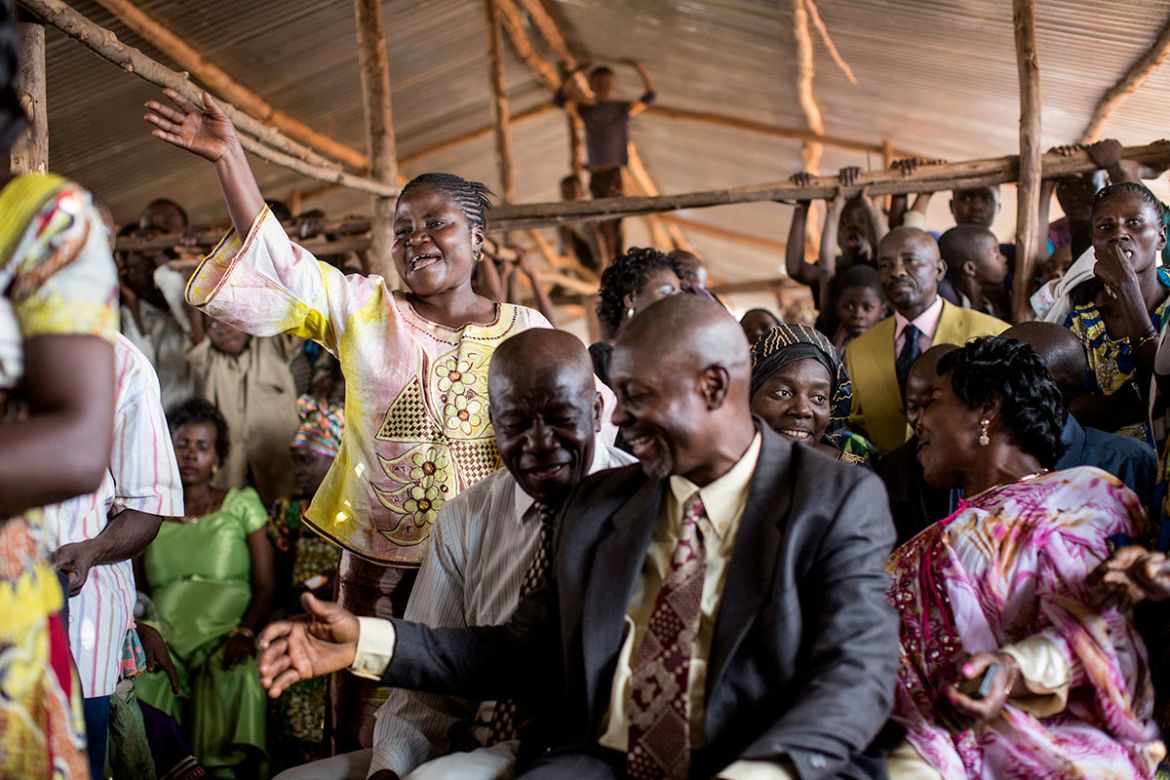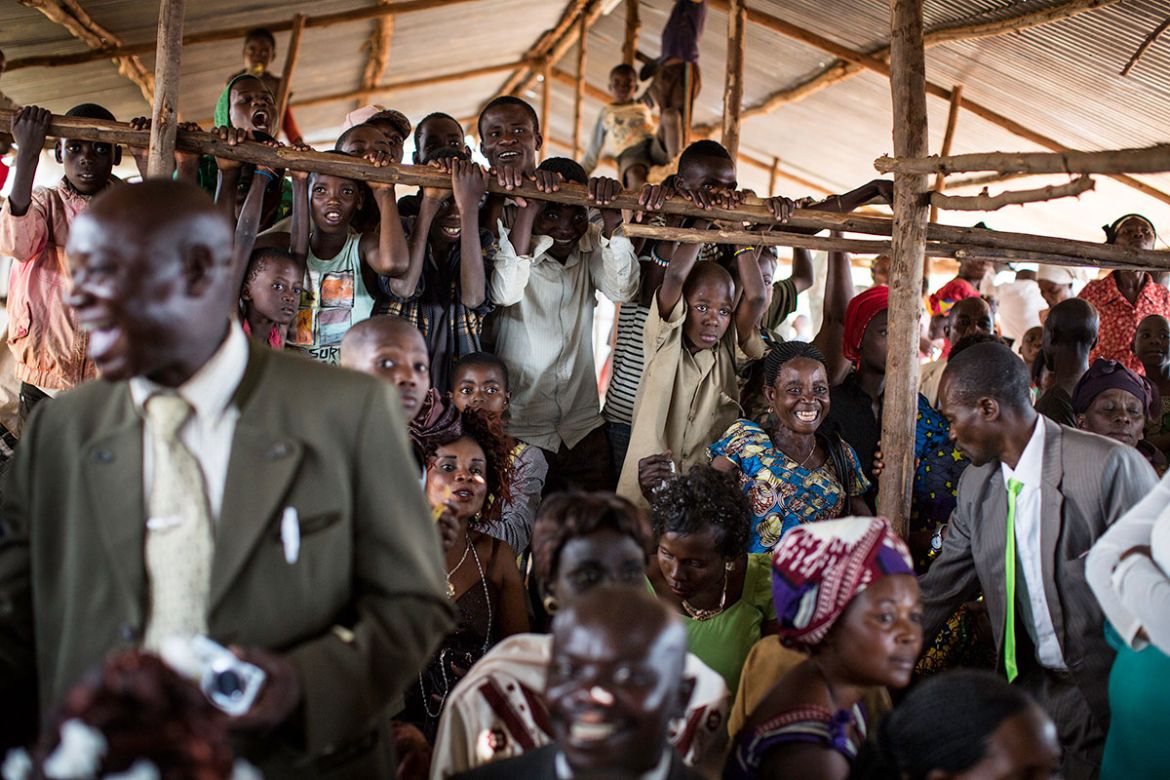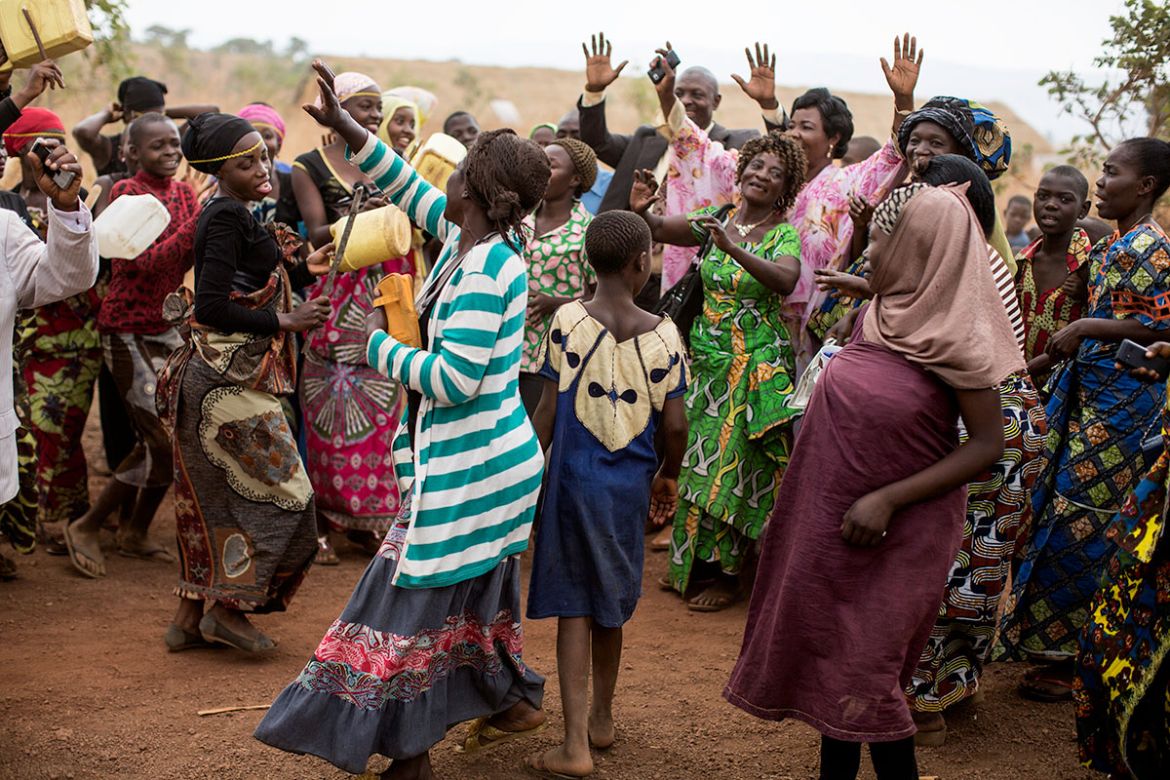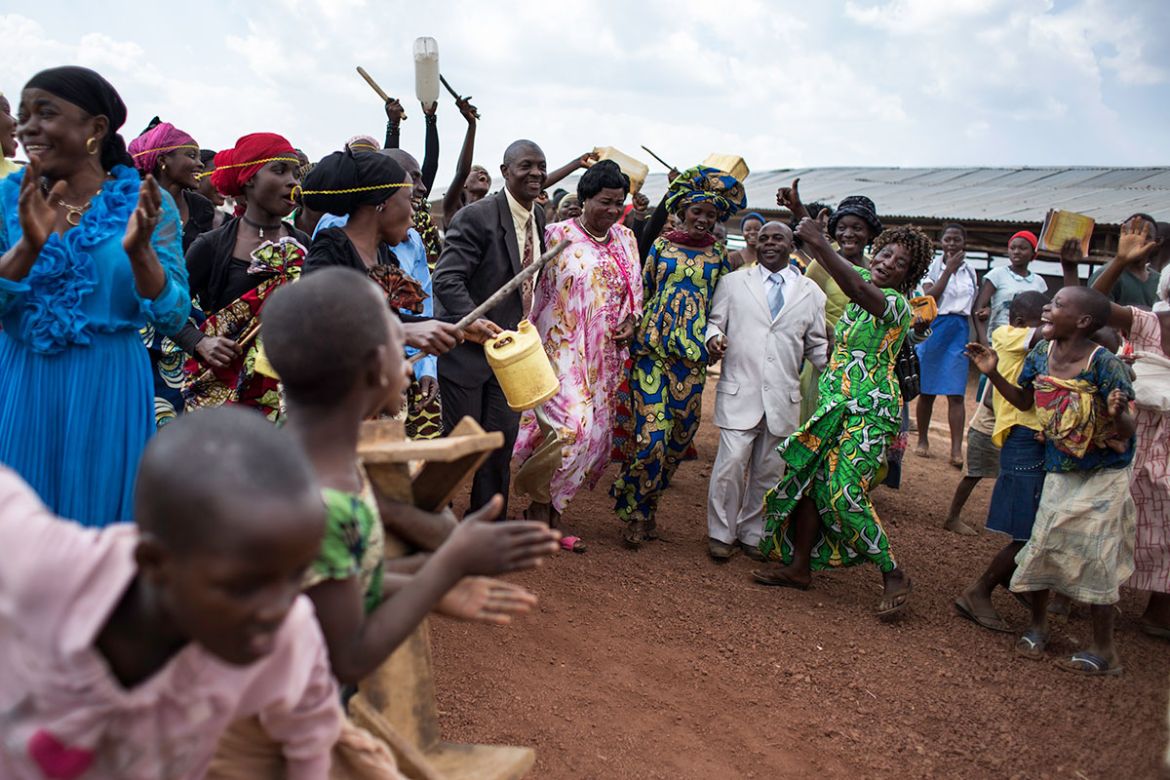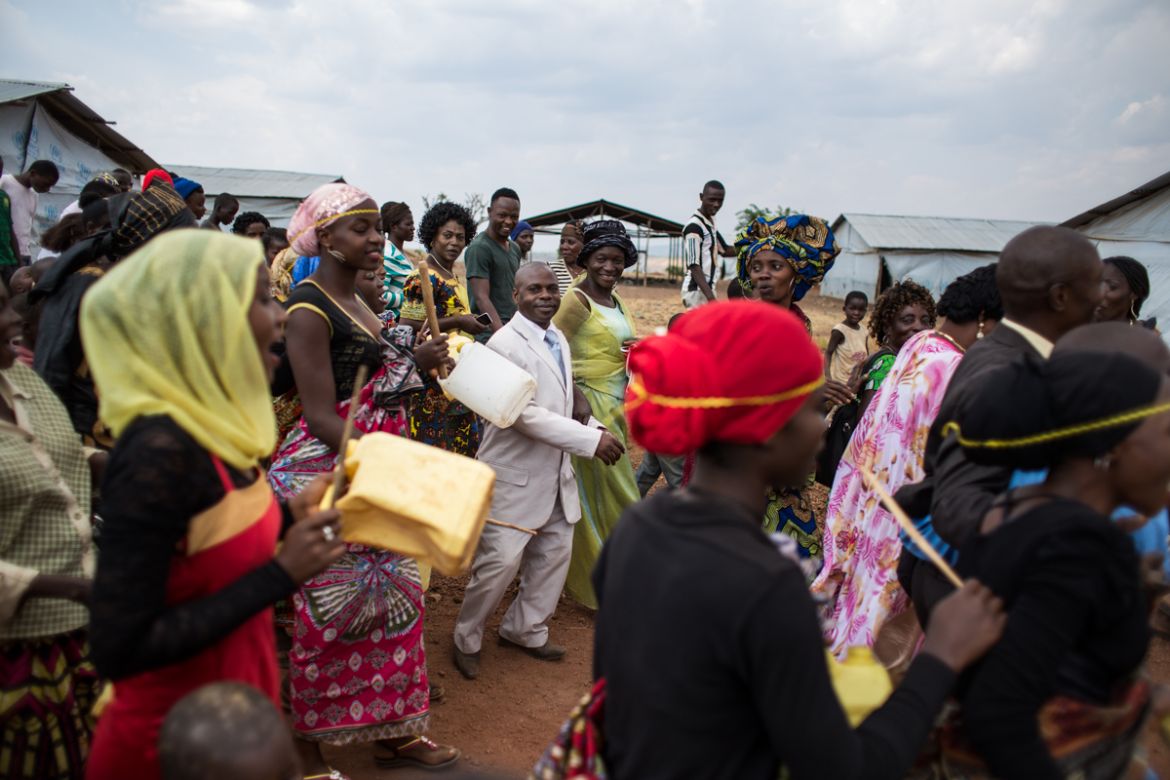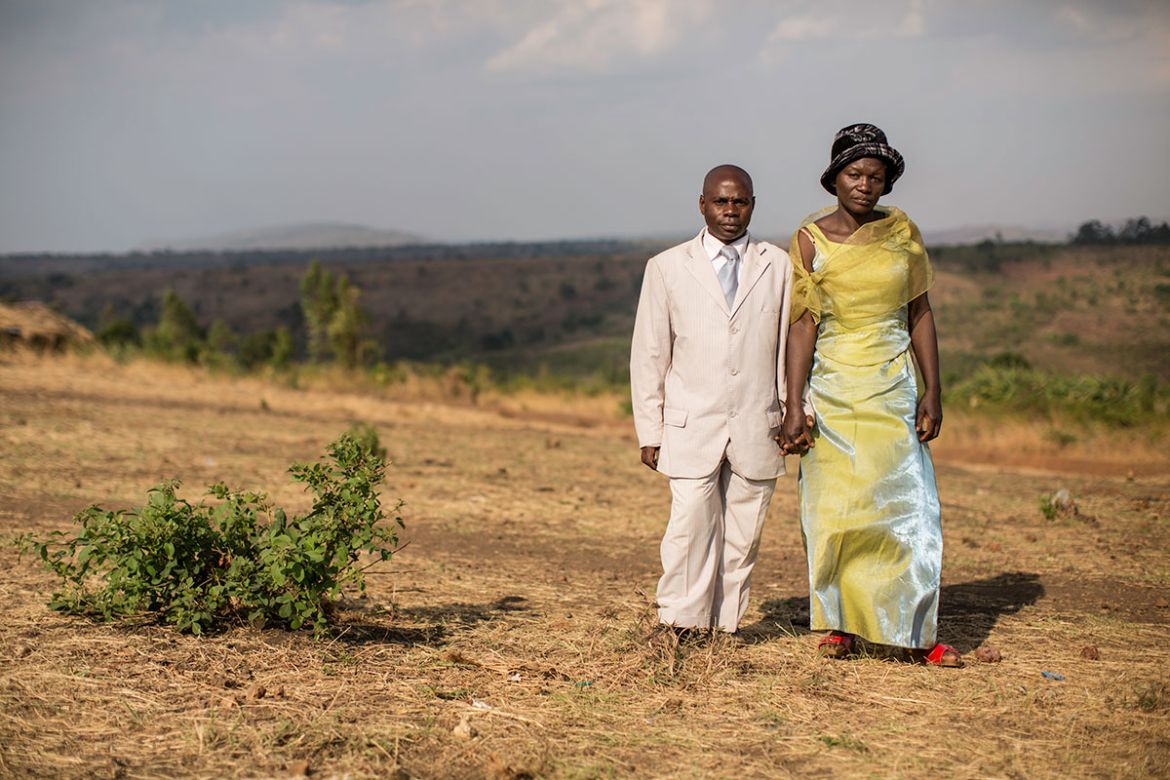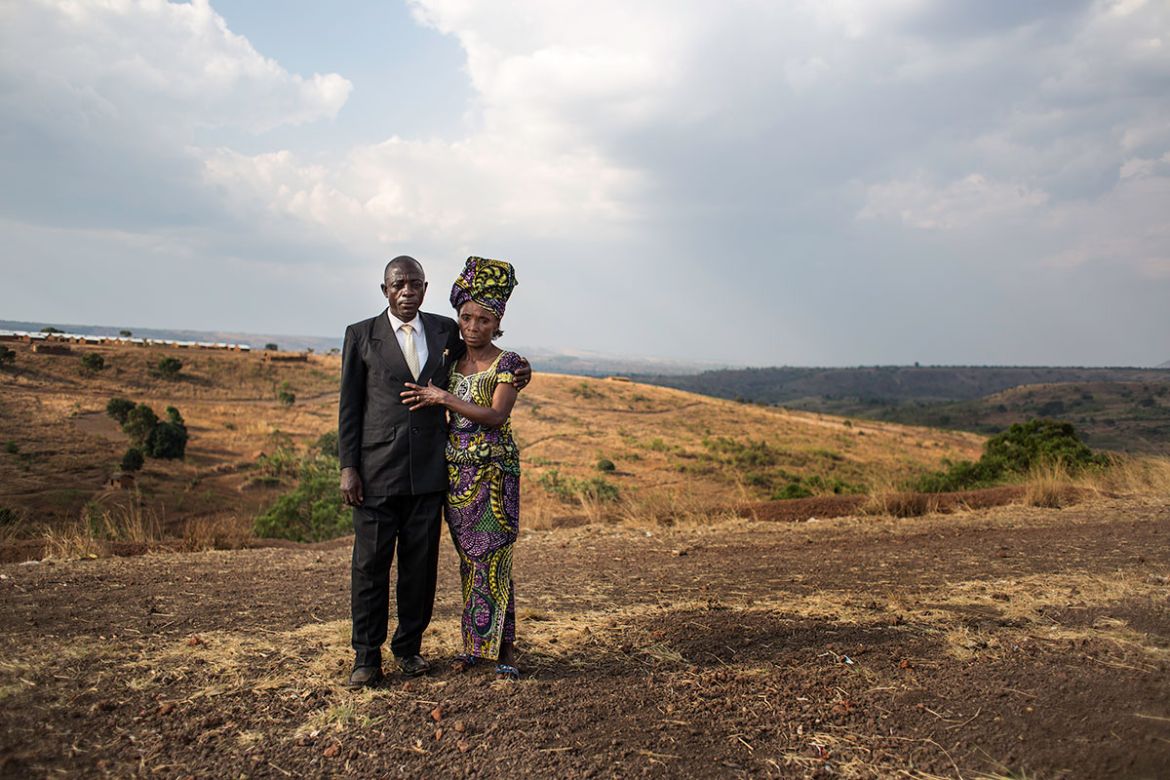In Pictures
In Burundi, a mass wedding celebration for DRC refugees
They have fled their homes and lost loved ones to conflict, but for 46 Congolese couples there is a reason to celebrate.
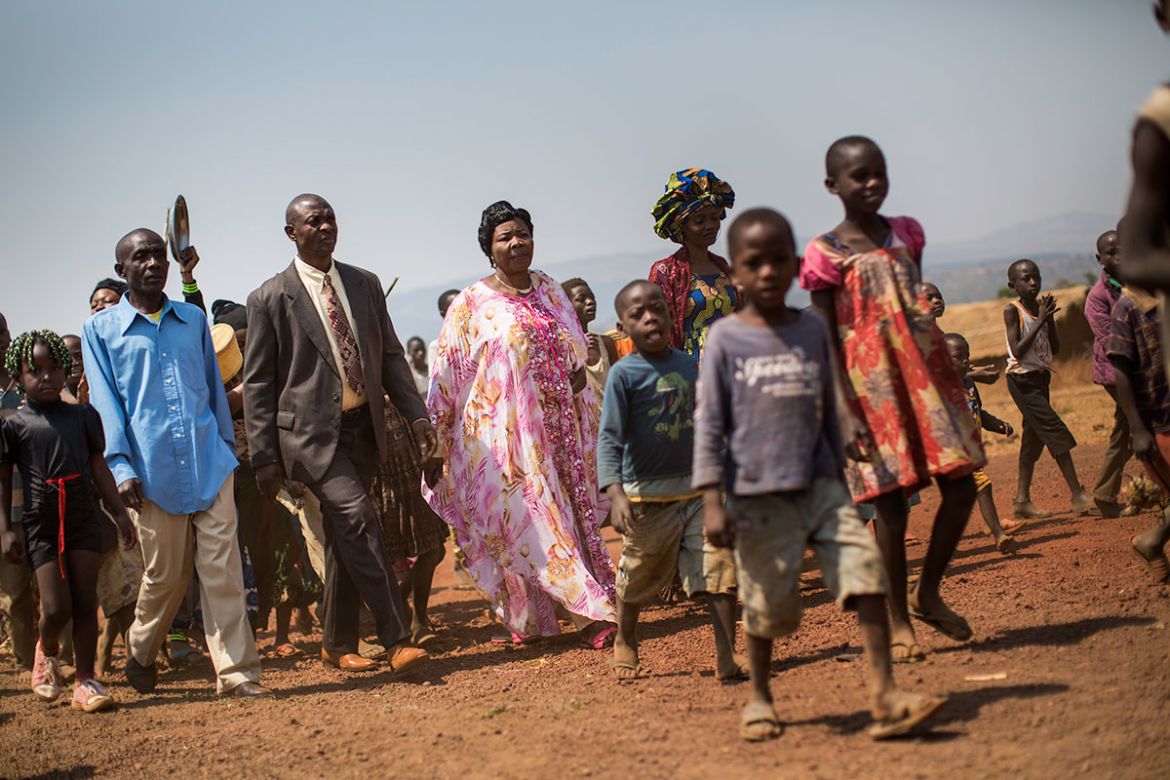
Kavumu, Burundi – Inside a wooden, tin-roofed structure in the Kavumu refugee camp in eastern Burundi, 46 couples are waiting to get married. They have all fled their homes in the neighbouring Democratic Republic of Congo.
Some of them are already married but, having lost their wedding certificates when they left their homes, are going through the process again. Others, like Bonnet Mfaume and Zubeda Karinga, are marrying each other for the first time. Zubeda is pregnant with their fifth child and describes her “unusual happiness” about the occasion. It is a cause for celebration at a time when they have had little to feel positive about.
But marriage can mean more than that for the refugees. Abel Mbilinyi, the Burundi representative for the UNHCR, explains that marriage offers “protection for women”.
“In a refugee camp, depending on which religion you are having, depending on culture, the protection of a husband is so important,” he continues. “Women who are single are vulnerable. They are vulnerable to being attacked by single men.”
MORE: Is the DR Congo on the brink of collapse?
Deo Kasereka and Antoinette Etamboseka are among those waiting to get married. They have been a couple for many years and have five children together.
They fled their home in Goma, in the east of the Democratic Republic of Congo. or DRC, after Deo was accused of giving the M23 rebels medical supplies from the pharmacy he owned. He says men in military uniforms came to his house while he was in hiding.
“Not finding me there, they abused my wife,” he says. “I had a little brother at home to whom they also asked my whereabouts. He replied that he was not aware of where I was and they shot him dead on the spot.”
The couple’s oldest son is 14 years old. He went missing during their flight, and they haven’t seen or heard from him since.

